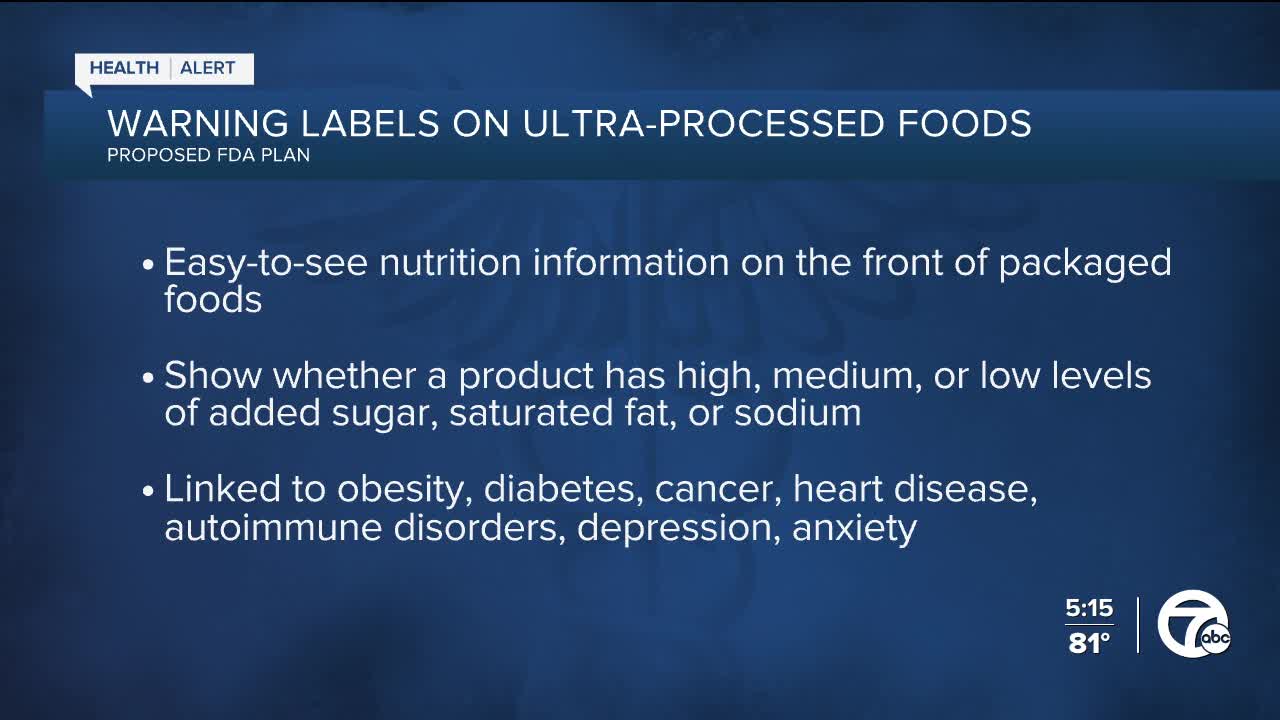(WXYZ) — Could warning labels on your favorite ultra-processed foods help improve your health or just add confusion? The Food and Drug Administration is weighing bold new labels that could change how we shop for food, but would they actually help make Americans healthier?
These warning labels are part of a proposed FDA plan to put simple, easy-to-see nutrition information right on the front of packaged foods. The goal is to give shoppers quick, clear guidance. They’d show whether a product has high, medium or low levels of added sugar, saturated fat or sodium.
So, why put them right on the front? Well, ultra-processed foods like chips, snack bars, cereal, frozen pizza and many other popular prepared foods often contain high amounts of these ingredients.
These are foods that you can’t really make in your home kitchen. Why? Because they’re created using industrial techniques that chemically or physically change the food. They also have things added like artificial colors, flavors and preservatives to make them last longer and make your taste buds want more.
Now, here’s the problem: research has linked eating too much sugar, salt and unhealthy fats to obesity, diabetes, cancer, heart disease, autoimmune disorders and even depression and anxiety.
Right now, many Americans are eating more of these ingredients than they should, often without realizing it.
Some countries are using warning labels — albeit different from what the FDA is proposing. Results have been mixed. In Chile, warning labels led people to buy fewer foods high in sugar, salt and fat, but they didn’t stop obesity rates from rising. Nor did the labels affect rising diabetes rates in Mexico. And in Brazil, warning labels didn’t really change how people shopped or how healthy they thought a product was.
So, while warning labels might help raise awareness, they don’t seem to spark big behavior changes on their own. That’s likely because food choices are influenced by many factors like price, habits, culture and, of course, marketing.
I think we’d see similar patterns here. Labels won’t be a magic fix, but they could help, especially if they’re part of a bigger effort that includes nutrition education, smarter food policies and better access to fresh, whole foods.
One hopeful outcome is that manufacturers start changing their recipes to avoid getting a warning label. That could lead to more healthy options over time.
In the meantime, we really need to keep educating people to choose healthy, nutrient-dense foods and go easy on the junk food.




